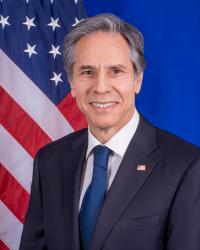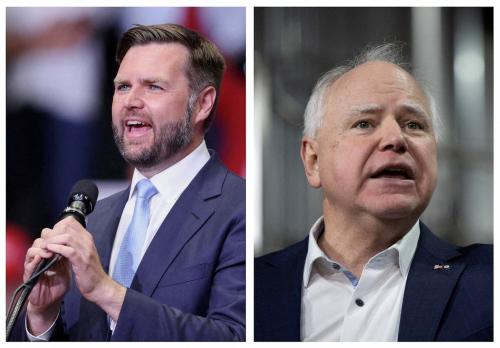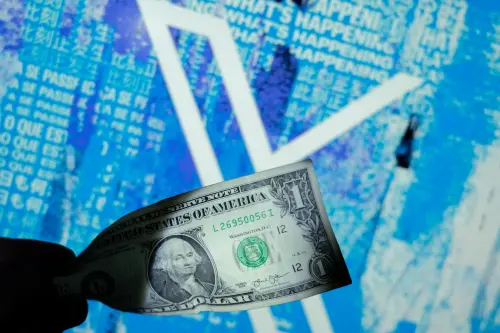

2:00 pm EST - 4:00 pm EST
Past Event
2:00 pm - 4:00 pm EST
1775 Massachusetts Ave., NW
Washington, DC
On February 5, 2007, the Brookings Institution hosted three senior staff members from key Congressional committees in the House and Senate for a discussion of how China is perceived by members of the Democratic majority in the newly-elected 110th Congress. According to the speakers, in the view of Congressional Democrats China represents a broad set of challenges and opportunities. The US-China relationship has deepened over the past decade and a consensus has emerged on engagement with China, which means that there are now parameters on how far Congress might seek to alter the relationship.
Foremost among the issues in the US-China relationship that are likely to get attention from Democrats on Capitol Hill are China’s quest for energy in Sudan and Iran; its intimidation of Taiwan; its human rights record at home; its recent anti-satellite weapon test; its failure to fully implement its WTO commitments; and its efforts to evolve a “third way” of reaching economic development and military strength without developing a liberal, transparent and democratically-accountable form of government.
On trade, Congressional Democrats are worried by Beijing’s accumulation of more than $1 trillion in foreign exchange reserves, the continued growth of the US-China trade deficit (now running close to $250 billion annually), China’s refusal to substantially revalue the RMB, and its inability or unwillingness to successfully combat intellectual property rights theft.
With respect to the North Korean nuclear issue, Congressional Democrats see China’s efforts to facilitate the Six Party Talks and its willingness to allow United Nations Security Council sanctions to move forwards as an important contribution by the PRC to peace and stability in the Asia-Pacific. Congressional Democrats recognize that there are opportunities for the United States to work together with China on a number of other critical issues as well, from combating the spread of infectious disease to achieving greater energy security to helping improve environmental protection. Since the attacks of September 11, 2001 and the beginning of the wars in Iraq and Afghanistan, there has been an absence of sustained strategic attention in overall US policy towards China, which is then reflected in Congressional attitudes towards Beijing.
Most members of Congress pay only episodic attention to issues involving China, and most of this is focused on immediate or near-term issues, with the result that most Congressional focus on China is reactive and problem-centric. Many members of Congress face questions from their constituents along the lines of “What are you doing about China?” This question reflects a vague but deeply-felt sense among the American people that the PRC poses a number of substantial challenges to US interests, both at home and abroad.
The new Democratically-controlled Congress is likely to respond to these concerns in several ways. First, it will use investigations and oversight hearings to hold the Bush administration accountable for its trade policies. It will examine whether or not the United States Trade Representative’s Office has effectively used the policy tools (including annual reviews at the WTO and safeguard mechanisms) at its disposal to defend US interests against China’s use of export subsidies, especially but not exclusively in support of the textile industry, industrial policy, local content requirements and other WTO-inconsistent measures. The Democratic Congress will probably be concerned that any free trade agreement China signs with ASEAN or other East Asian partners, specifically ensuring that such a deal be WTO-consistent and not trade-distorting. There may be proposals to apply the relevant laws on countervailing duties (CVD) to China. There will probably be greater support for the Hunter-Ryan bill on Chinese currency manipulation. Many Democrats in Congress see themselves as trying to give Treasury Secretary Paulson greater leverage vis-à-vis Beijing. The House Ways & Means Committee will begin meetings on the currency issue at the Subcommittee level during the week of February 12, 2007. They will also hold hearings on China’s subsidies and intellectual property rights. There may be a revisiting of the CFIUS legislation, and there will probably be some interest in looking at tightening up the Iran-Libya Sanctions Act in response to China’s investment in oil and gas fields in Iran.
Members of Congress took note that the Bush administration recently filed cases at the World Trade Organization against China for its use of domestic subsidies. This filing is not likely to assuage the larger concerns that Democrats in Congress have about the administration’s trade policies, since there is a widely-held view is that this filing is a direct outgrowth of the November 7 election results, and not a genuine recasting of trade policy strategy.
Second, Democrats in the Congress will be placing a greater emphasis on human rights in China, which will mean more of a focus on Tibet, but also on Uighurs, Falungong, religious freedom and Internet freedom. There may also be efforts to resume funding for the United Nations Population Fund.
Democrats in the Congress will also be looking to Taiwan to do more to provide for its own security and not leave the entire burden of defending it to the US. There will probably be continued support for a greater role for Taiwan in the World Health Organization. A US-Taiwan free trade agreement is unlikely to go very far at this point, especially given the difficulties Taipei has had in approving the budget for the 2001 arms package and the looming expiration of Trade Promotion Authority.
While the Democrats in the Congress will be looking to bring more attention to a number of issues in US-China relations such as human rights, they are likely to do so by issuing non-binding resolutions and through Congressional oversight hearings, not generally by passing binding legislation. The exception to this may be in the arena of trade, where legislation is a distinct possibility.



Darrell M. West
September 16, 2024

Nicol Turner Lee, Darrell M. West
September 16, 2024

Kurtis Nelson, Darrell M. West
September 12, 2024